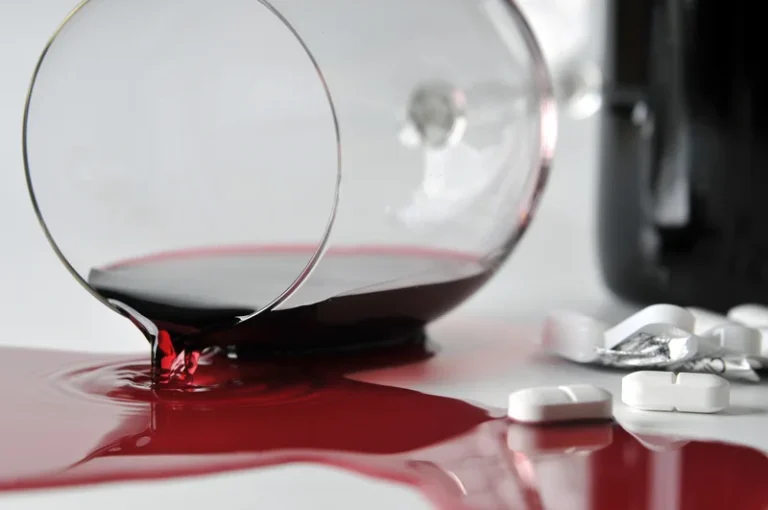
People with alcohol abuse problems are more likely to suffer from depression, anxiety disorders, bipolar disorder. When it comes to the bottom line as it relates to alcohol consumption and brain health, the data are rather solid on some fronts, and a bit less so on others. There’s also the potential for confounding variables, including the fact that many people like to drink alcohol to enjoy and enhance social bonds (which we know are beneficial for the brain). Experts say the first approach to getting rid of brain fog includes looking at lifestyle factors such as nutrition, sleep, and exercise. If you’re wondering how to get rid of alcohol-induced “brain fog,” it may be time to seek professional treatment. Professional treatment can help you stop drinking and regain control of your life.
How to Overcome Brain Fog and Regain Clarity During Recovery
- In addition, acupuncture can also help improve your sleep quality, which can further help reduce the symptoms of alcohol fog or brain fog in general.
- A person’s brain chemistry can change dramatically through alcohol use.
- If you are experiencing any of these symptoms, it is essential to speak to a medical professional.
- It can even happen after alcohol detox or alcohol rehab, as alcohol damage lingers in your body long after you quit drinking alcohol.
That’s why our goal is to make rehab accessible through a variety of rehab insurance coverage plans we have on offer. We invite you to learn more about them and let our team help you find the right insurance option for you or your loved one. The process of detoxification involves various bodily systems, particularly the liver and kidneys, which play a vital role in filtering and excreting toxins. The body may also eliminate substances through sweat, urine, and breath.
Alcohol Brain Fog: Causes, Symptoms, Remedies
The journey to recovery from alcohol addiction and brain fog can sometimes require additional support. Medication, such as Naltrexone and Acamprosate, can help reduce cravings and prevent relapse, offering a powerful tool in the fight against addiction. The consumption of alcohol leads to alcohol brain fog an interference with neurotransmitters and negatively affects overall brain health, causing what we know as alcohol brain fog.
- A medical professional will be able to rule out any other potential causes of your symptoms and provide the appropriate treatment process for you, including alcohol addiction treatment.
- When it comes to the bottom line as it relates to alcohol consumption and brain health, the data are rather solid on some fronts, and a bit less so on others.
- Engaging in new activities is a great way to give your brain a workout.
- Once you take away the chemical reactions that alcohol causes, your brain has to refigure out how to work normally again.
- This is because acupuncture can help to improve blood circulation and reduce stress levels.
The Known Brain-Damaging Effects of Excess Alcohol
Following a bout of heavy drinking, a person may experience symptoms including decreased attention and concentration.3 This can impair a person’s ability to perform certain tasks. As a result, they may perform poorly at school or work and be at an increased risk of injury. Alcohol-induced brain fog is a state of confusion, lack of focus and mental obscurity that can occur after drinking alcohol and during withdrawal. So, pace yourself, stay committed, and keep moving forward, one step at a time. If you’re seeking a fresh start, a Greenville South Carolina rehab center can offer detox programs that effectively manage withdrawal symptoms and safely eliminate alcohol from your body. Additionally, incorporating mindfulness activities like meditation can play a role in strengthening brain circuits that may have been affected by alcohol use.
Alcohol withdrawal brain fog
Feeling mentally drained happens to everyone from time to time, especially when experiencing sleeping difficulties. But brain fog is not the same as fatigue or lethargy, although they often go hand in hand or co-occur with symptoms of other conditions. Brain fog can be hard to define since it is not a medical term or diagnosis. Any brain that’s been the victim of extended substance abuse certainly couldn’t be harmed by a memory or concentration exercise. Brain fog is one of the many consequences caused by excessive alcohol and substance abuse.
Alcohol Withdrawal and Brain Fog

If left untreated, alcohol dependence can transition into an alcohol use disorder. The health concerns of an alcohol use disorder are usually enough to cause someone to embrace moderation. It is important to remember that your body is going through a lot when you first stop drinking alcohol. The brain is so good at adjusting to changes regarding what you put into your body that it figures out how to function during times when you are drinking heavily. Once you take away the chemical reactions that alcohol causes, your brain has to refigure out how to work normally again. Brain fog during the initial stages of withdrawal is often just your brain trying to figure out how it used to function before it was flooded with alcohol on a regular basis.
Contact Miracles Recovery Center…
A recently released study by the RAND research group revealed the many ways that sleep deprivation negatively affects brain function. Abstinence can often reverse the harm that drinking may do to the brain. Seeking treatment and maintaining sobriety is essential to prevent relapse and keep your cognitive function on the rise. By committing to long-term sobriety, you can give your brain the chance to heal and witness the positive changes in your brain fog symptoms. It’s like giving your brain a breath of fresh air after being submerged underwater for an extended period.

Common Symptoms of Alcohol Fog

Alcohol dependence happens when our brain chemistry adapts to the presence of alcohol, leading to a reliance on it https://ecosoberhouse.com/ to feel ‘normal’. This dependence plays a significant role in the intensity and duration of brain fog during withdrawal. The more prolonged and heavier the alcohol use, the greater the probability that the brain fog will remain for a longer time.
Therefore, it is crucial to drink plenty of water when you are trying to relieve the symptoms of alcohol fog or brain fog in general. Alcohol abuse can cause brain fog by inhibiting the energy metabolism of our brain’s neurons. When alcohol isn’t metabolized properly, less glucose is available to fuel neurotransmitters like glutamate and GABA. An alcohol use disorder causes brain damage due to malnutrition and inflammation caused by an overabundance of toxic metabolites such as ammonia, acetaldehyde, and free radicals. Alcohol is a popular substance, especially in polydrug use such as cocaine and benzodiazepines.